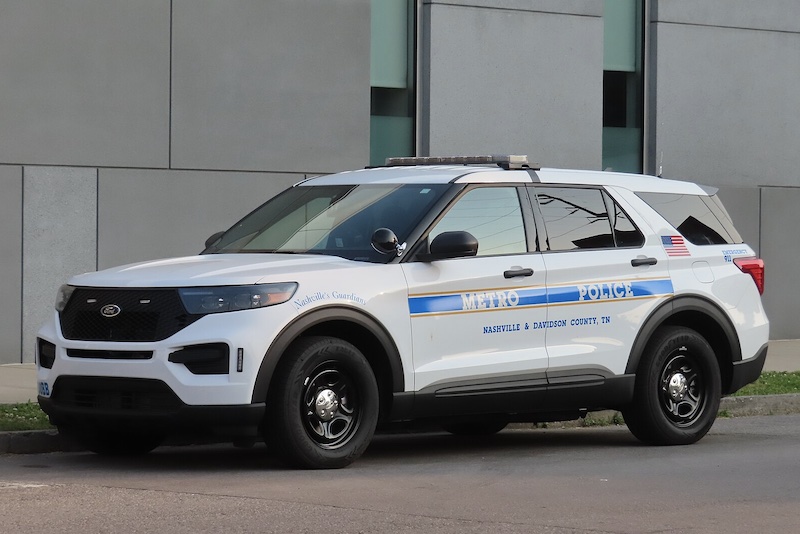Lawsuit alleges TSA demanded transgender teen show her private parts in order to board plane
Lawsuit seeks court order compelling TSA to abide by its policy prohibiting strip searches

A transgender teenager and her mother have file a federal lawsuit against the Transportation Safety Administration, accusing it of violating the 16-year-old’s constitutional rights when officers demanded that she show her genitals in order to board a flight.
Jamii Erway and her mother Kimberly were attempting to board a flight out of Raleigh-Durham International Airport in North Carolina in May 2019. When Jamii went through the scanner, it set off a “false positive,” in which officers are alerted that a passenger may be carrying or hiding a weapon or other contraband.
The teenager informed TSA officers that she is transgender and if they changed the gender marker on the machine, everything would be fine. But the officers refused and called a supervisor, who demanded that Jamii accompany her to a private room, expose her genitalia, and consent to a strip-search, according to the lawsuit, which was filed in the U.S. District Court for the Eastern District of North Carolina last week.
Kimberly Erway attempted to ask what was happening, but was told to “mind her own business” by officers. When she asserted her parental rights, the supervisor told Erway that she would have to consent to having Jamii strip-searched in order to board the plane. When Erway refused, the supervisor called a police officer, who refused to detain the mother and daughter or enforce the search.
The Erways then left the airport of their own free will, and drove over 600 miles to return to their home in Rochester, N.Y. They later filed a claim with TSA for $1 million alleging that Jamii had suffered damages as a result of the incident. TSA denied the claim, saying it would not consider it without additional documentation.
According to TSA guidelines, agents are not supposed to view or directly touch a passenger’s genitals, but may ask for pat-downs to check any passengers who are flagged by the full-body scanners.
The lawsuit claims that Jamii, who typically flew by commercial airplane several times per year prior to the incident, has suffered emotional distress, including symptoms of panic, anxiety, fear, racing heart, shortness of breath, uncontrollable shaking, and nausea, which have hampered her from flying since then.
The lawsuit also alleges that the TSA agents violated Jamii’s Fourth Amendment right to be free from unreasonable search or seizure, and seeks an injunction to compel TSA to enforce its current guideline prohibiting strip-searches.
See also: Trans woman forced to show TSA her genitals in order to board plane
According to the 2015 U.S. Trans Survey, which surveyed 28,000 transgender adults, found that 43% of transgender adults who had flown commercially over the previous year reported a negative experience, such as being patted down by an officer of the wrong gender or being loudly questioned about their body parts at a checkpoint.
The National Center for Transgender Equality, which has been trying to work with TSA to improve its screening policies for transgender people, reiterated its call for drastic changes to the screening process.
“The current system of passenger screening seriously compromises civil rights and privacy, and transgender travelers are affected particularly harshly. The travelers we hear from don’t just want to get to their gate more quickly, they want to get on a plane without discussing their private parts or having them touched by government officials,” Harper Jean Tobin, director of policy for the National Center for Transgender Equality, said in a statement.
“This appalling case just shows what happen when the government makes it its business to know what’s in America’s pants, and uses intrusive technology and jail-style pat-downs to find out. This isn’t a training problem — it’s inherent in the current system of passenger screening that is based on pat-downs and stereotypes,” Tobin added.
“This system causes humiliation, whether for transgender people or religious minorities or people with disabilities. TSA keeps saying solutions are just around the corner, but they’ve been saying that for years, and they seem laser-focused on expensive and intrusive new machines with no guarantee the new technology won’t create new problems.”
Read more:
Virginia governor signs LGBTQ nondiscrimination protections into law
Advocates fear North Carolina schools’ virtual learning system will “out” transgender students
Support Metro Weekly’s Journalism
These are challenging times for news organizations. And yet it’s crucial we stay active and provide vital resources and information to both our local readers and the world. So won’t you please take a moment and consider supporting Metro Weekly with a membership? For as little as $5 a month, you can help ensure Metro Weekly magazine and MetroWeekly.com remain free, viable resources as we provide the best, most diverse, culturally-resonant LGBTQ coverage in both the D.C. region and around the world. Memberships come with exclusive perks and discounts, your own personal digital delivery of each week’s magazine (and an archive), access to our Member's Lounge when it launches this fall, and exclusive members-only items like Metro Weekly Membership Mugs and Tote Bags! Check out all our membership levels here and please join us today!





















